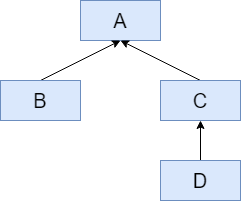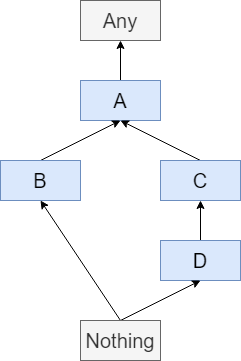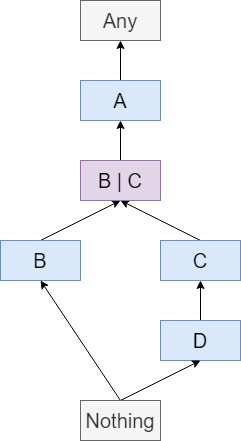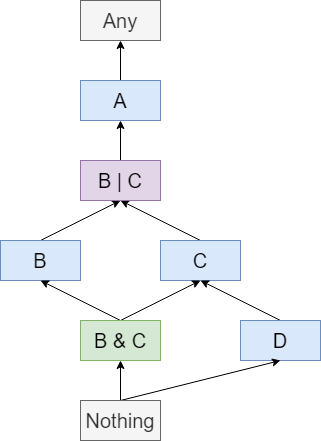Rules for checking a simple subtyping system.
This is a little toy project I made to learn a bit of Prolog. It describes a simple type system and can answer queries about the subtyping relationship between two types:
?- subtype(c, a).
true .
?- subtype(d, c).
true .
?- subtype(d, a).
true .
?- subtype(intersection(b, c), a).
true .
?- subtype(d, union(b, c)).
true .And more!
Types can be introduced by stating which type is its direct super type.
extends(b, a).
extends(c, a).
extends(d, c).These declarations correspond to the following type lattice when ordered under subtyping:
The type system has a universal top type, Any, and a universal bottom type Nothing. The former is the supertype of all types, and the latter is the subtype of all types.
That is, subtype(X, any). and subtype(nothing, X). would each enumerate all (infinitely-many) types.
With that in mind, the above diagram can be more-correctly shown as:
A value of the type A | B must be of type A or B. Each of the members of a union are subtypes of the union.
These are expressed as union(a, b). This can be nested to produce an arbitrarily-large union: union(a, union(b, union(c, ...))).
Because there are infinitely-many unions of any number of types, I'll only add one interesting one to the diagram:
A value of the type A & B must be of type A and B. The intersection is a subtype of each member of the union.
These are expressed as intersection(a, b) and can be nested like unions.
Again, adding just one intersection...
Eventually, I would like to support higher kinded types, with all sorts of variance. For now, this is not supported.



